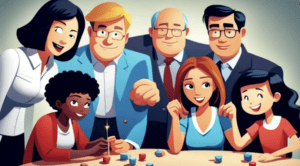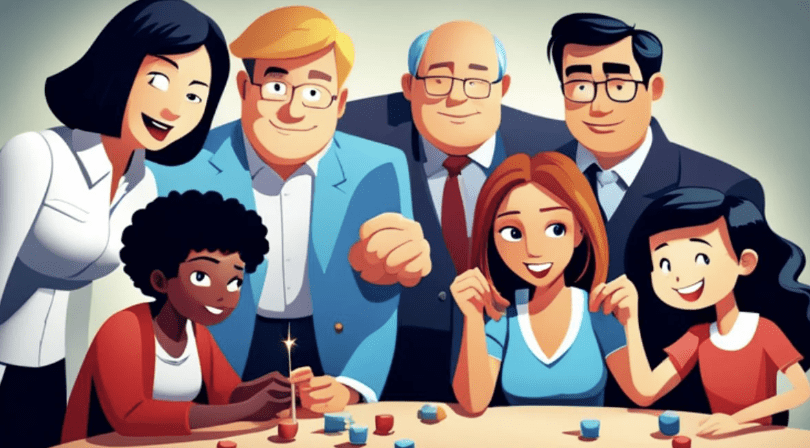
Before this class, I thought about play as something that had to be entirely spontaneous. I enjoyed things simply because I enjoyed them — I never really thought about why some puzzles were more engaging than others, or why certain social dynamics played better than others. I also never really thought about game design at all. If I did, it was from a very technical perspective — evaluating the aesthetic or difficulty of a game. I never paused to consider what dynamics of interactions a game designer might have sought to produce.
By playing a LOT of games this quarter and designing two of my own, I’ve learned about how fun can be programmed by a game, and yet still be organic and fun. I found it particularly cool to play various games while thinking like a designer. Games like Journey, which I would’ve probably played pretty mindlessly, became even more interesting as I began to take note of the small details and hints that designers had added to shape my experience. Building my own games helped me appreciate this even more dramatically. I didn’t realize how important it is to continually validate and test your ideas. Things I assumed would be roaring successes due to what we’d learned in class, or my own internal beliefs on what was fun, ended up being duds in playtests. But the converse was also true. It was also inspiring to see how creative our players were — there’s so much to be learned by listening to those who are willing to play your game with an open mind.
I found it very challenge to mind map things — that’s simply not how my brain works. But by the end of the quarter, I could feel myself loosening up, and even my brain being a bit quicker at organizing the main ideas of a relatively long reading or video. I also found it pretty intellectually stimulating to try and distill paragraphs of readings into a single icon or visual. Having to put brain power into this translation definitely helped me understand the contents of the class at a higher level, and in their simplest form.
I found it extremely rewarding to work with a team on both games. It was awesome to close the quarter having brought two things to life. I hope to prioritize this lean building methodology in my coursework, and in terms of what I do professionally. I also think that I grew a lot of practical skills, like synthesizing written information and expressing it visually and using platforms like GDevelop. Going forwards, I intend to seek out more creative ways to express my technical education. I find that I particularly enjoyed the storytelling component of games, and hope to lean into that in both my coursework and extracurriculars.
On a personal note, the power of “playtesting” is probably one of the most important things I learned this quarter. It’s taught me that bad feedback isn’t bad or something to be feared. I now approach challenges/experimentation with the mindset of iteration, and see them as opportunities for growth and inspiration.




